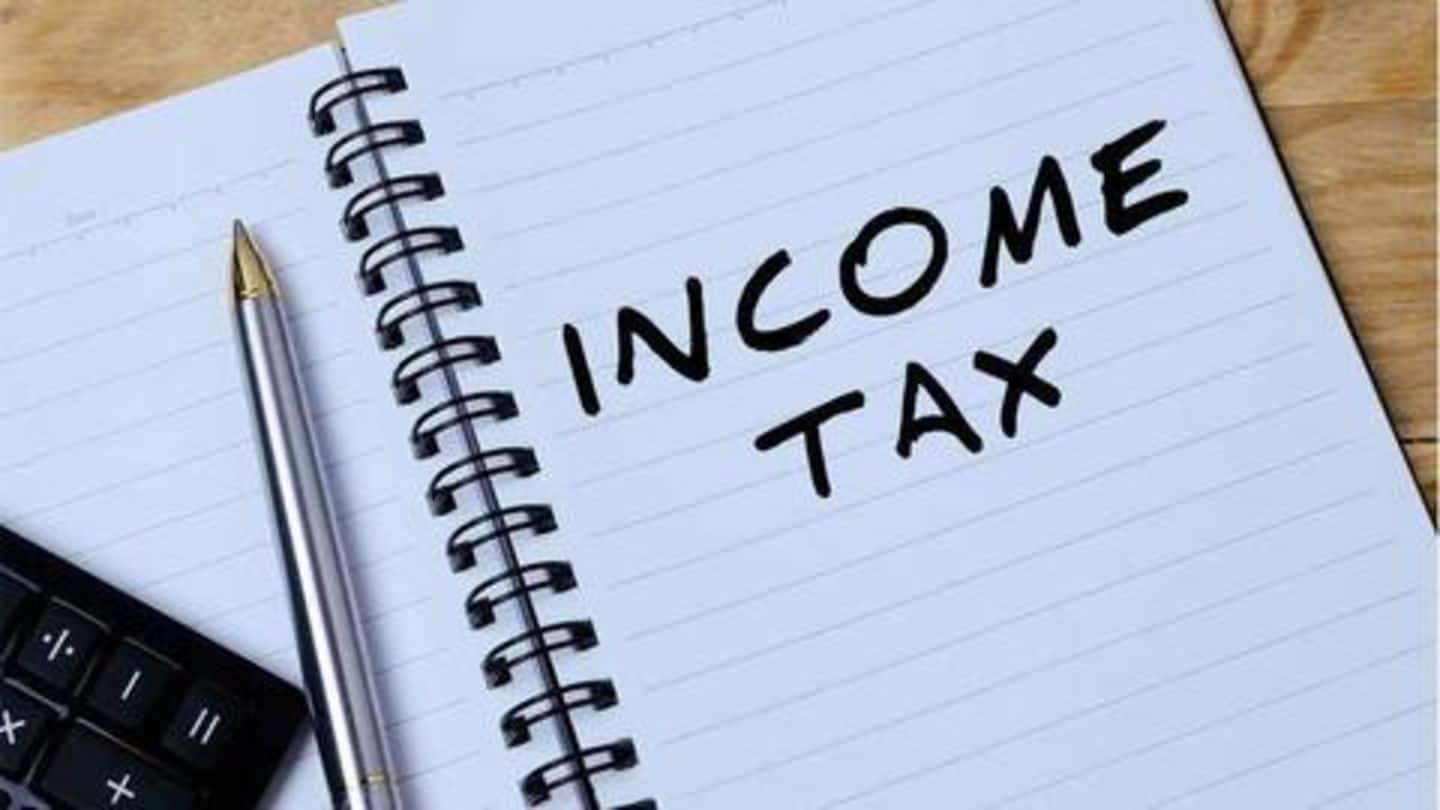
Filing your Income Tax return (ITR)? Know these points
What's the story
August 31, 2019 is the last date to file your Income Tax return (ITR).
Notably, all taxable entities and individuals must report their annual earnings before this specified due date to avoid penalty and other dire consequences.
The deadline is just one week away- hence, hurry up.
If you haven't filed your ITR yet, here are some points you should know.
Tax rates
What are the applicable tax rates for different categories
For the purpose of tax assessment, the I-T department has classified taxpayers into categories. Here are the details for residents aged 60 years or less:
Those earning an annual income of upto Rs. 2.5 lakh have been exempted from paying tax.
Residents, earning an annual income between Rs. 2.5-5 lakh, need to pay 5% of their income exceeding Rs. 2.5 lakh, plus 4% cess.
Information
Note: Tax rates for residents aged less than 60 years
Further, taxpayers earning an annual income between Rs. 5-10 lakh are levied an Income tax of Rs. 12,500 + 20% of total income exceeding Rs. 5 lakh + 4% cess, while residents earning above Rs. 10 lakh will have to pay Rs. 12,500 + 30% of total income exceeding Rs. 10 lakh + 4% cess.
Senior citizens
Applicable rates for senior citizens (residents aged between 60-80 years)
Under this category of taxpayers, residents earning upto Rs. 3 lakh annual income have been exempted from paying Income tax.
Further, residents earning Rs. 3-5 lakh need to pay 5% on income exceeding Rs. 3 lakh (maximum Rs. 10,000), while those earning an annual income between Rs. 5-10 lakh are levied 20% on income exceeding Rs. 5 lakh (maximum Rs. 1 lakh) + Rs. 10,000.
Super senior citizens
Income tax rates for super senior-citizens (aged above 80 years)
Super senior citizens (residents aged above 80 years), earning an annual income of upto Rs. 5 lakh have been exempted from paying income tax.
Meanwhile, taxpayers earning an annual income between Rs. 5-10 lakh have to pay 20% tax on income exceeding Rs. 5 lakh.
And, residents having an annual income above Rs. 10 lakh need to pay 30% tax on income exceeding Rs. 10 lakh + Rs. 1 lakh.
Do you know?
What are the various documents needed to file ITR?
While filing your ITR, you need to keep certain documents handy for reference. These include Form 16 (issued by the employer), Form 26AS, Interest certificates from banks and other financial institutions, Aadhaar card, and salary slips, among others.
Procedure
Here's how you can file your ITR online
To file your ITR, follow this step-by-step guide:
First off, log on to the e-filing portal of the Income Tax department.
Click on 'Submit returns/Online returns...' link.
Log in to your account or register using your PAN.
Select assessment year, ITR form (as applicable) and submission code.
Finally, select 'Prepare and submit online' option. Enter the required details and submit.
Information
Alternatively, you can also download and upload the form
Another way to file your Income Tax return is to download the form as an Excel utility from the e-filing portal of the I-T department, fill in the required information, generate an XML file, and then upload it.
Verification
Also, don't forget to verify your Income tax return
You might think that filing your Income Tax return on time is all you have to do. But note that you also need to get your return duly verified.
There are various ways to verify your ITR such as Aadhaar-based OTP verification, or e-verification via net-banking.
You can also generate your EVC (Electronic Verification Code) via bank/Demat account, and bank ATM.
Do you know?
What will happen if you miss ITR filing deadline?
In case you miss ITR filing deadline (ie. August 31, 2019), you may have to face penalty upto Rs. 10,000, interest on net tax payable, issues in getting your refund, inability to carry forward losses to following years, and in some cases, even prosecution.
Provision
Separately, now use Aadhaar instead of PAN for filing ITR
On a related note, you can now quote your Aadhaar number in place of PAN to file your I-T returns.
This comes after Union Finance Minister Nirmala Sitharaman in her Budget speech announced that PAN and Aadhaar can now be used interchangeably.
Further, Aadhaar can also be used for services where quoting of PAN is necessary such as buying/selling gold, MF etc.